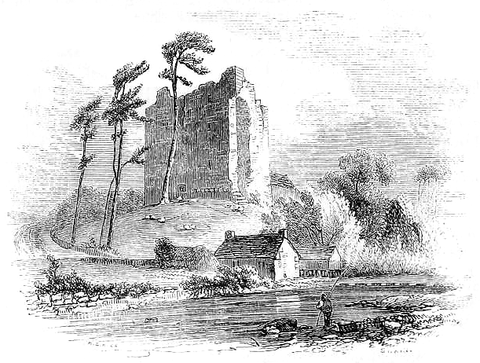knowledge? That such a promise was, however, afterwards extorted, or at least that the money was regularly paid, is scarcely to be doubted. Papa wrote to old Mr. Pembroke, telling him the result of his own interview with his son, and bidding the old man appeal to him (papa) again, in case he should ever fail to receive the annuity. No appeal ever was made, and so we will trust the old couple lived on to the end of their days in increased comfort, having no longer cause to complain of the stars fighting against them. They must, in the course of nature, be both dead long ago.
Mr. Pembroke, junior, left us at Easter as agreed. He did not return for his marriage. Possibly the dislike which Miss Green had in these latter days, conceived for papa, made her desire that his should not be the hand to tie the knot; for, about two months later, she went to stay with a friend in the south, from whose house, as we shortly after read in the papers, the wedding took place. Then came the news that Mr. Pembroke had bought the living of , held at the time by an octogenarian rector, who was obliging enough to die within the year. Mr. and Mrs. Pembroke immediately took possession, and the former, I hear, is still the rector, having daughters by a second wife, likely—when they come out—to be the belles of the county.
My sister Sarah came home to us, after her London season, engaged to be married to the Hon. Augustus Seymour, an agreeable and good-looking young man, with decidedly light hair and whiskers, not in the least resembling the picture the crystal of fate presented to her. Mr. Pembroke’s brother—“the respectable grocer,” being already disposed of—was of course not to be further thought of as a husband for Rose; another was, however, in due time found for her, while of my own fate I shall say nothing. The crystal, it will be remembered, left it a blank.
AN ARTIST’S RAMBLE ALONG THE LINE OF THE PICTS’ WALL.
PART IV.
Sampson Erdeswicke, who wrote concerning the wall as early as 1574, says: “The Scotts lyches, or surgeons, do yerely repayr to the sayd Roman wall next to thes (Cær Vurron) to gether sundry herbs for surgery, for that it is thought that the Romaynes there by had planted most nedefull herbes for sundry purposes, but howsoever it was, these herbes are fownd very wholesome.”
Near the wall, and on the eastern declivity of the defile, is a spring, popularly called King Arthur’s Well, but, by another tradition, it is understood to have been the well in which King Ecfrid was baptised by the Missionary Paulinus. We took a draught of the water, which is cool and pure.



